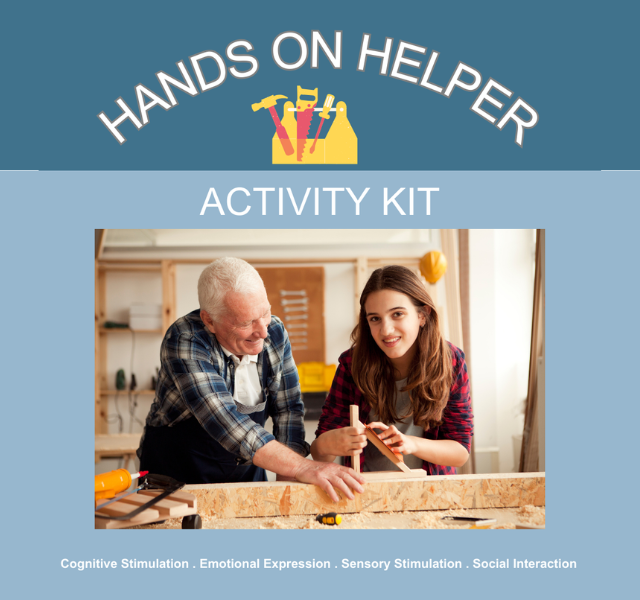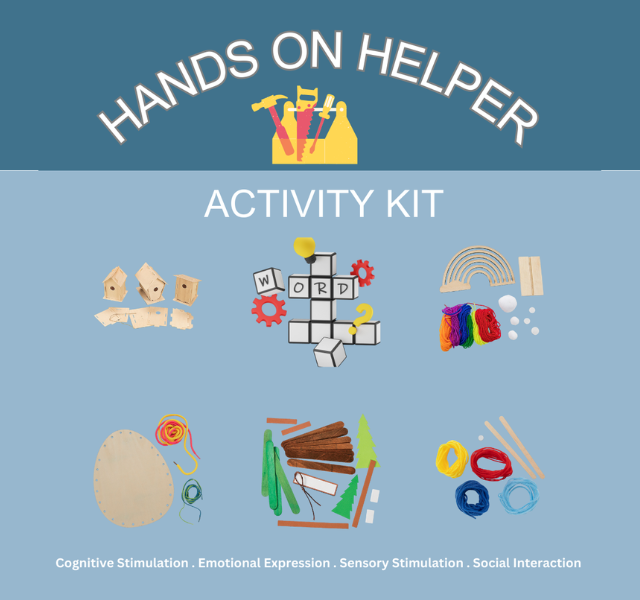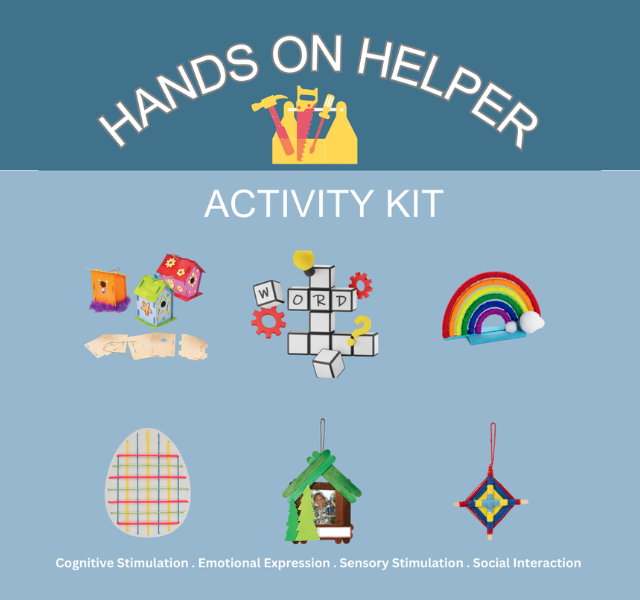


Our Products
Hands On Helper Activity Kit
Hands On Helper Activity Kit
Couldn't load pickup availability
- Each Activity Kit includes materials, accessories and instructions.
- Perfect way to weave art and crafts and logic puzzles into daily activities and life stations.
- Activities vary from simple to more complex.
*All pictures shown are for illustration purpose only. Actual product may vary.
Products available through Always Home Connected are sold for adult use and are not intended for use by children.
Product Size
Product Size
Each Activity Box comes in a 14"x10"x6" box and contains a minimum of 6 different activities which aim to engage the senses and stimulate the brain through arts and crafts, dexterity and logic. Each activity comes with detailed instructions, memory prompts and desired benefits.
Standard Features / Material
Standard Features / Material
Vary per kit depending on the theme and life station benefits
Benefits
Benefits
Cognitive Stimulation: Activities can stimulate various cognitive functions, such as memory, problem-solving, and creativity. This can help individuals maintain mental acuity and cognitive functioning.
Emotional Expression: Creative activities provide an outlet for emotional expression, allowing individuals to communicate their feelings and experiences even when verbal communication becomes challenging.
Sensory Stimulation: Art and craft activities often engage multiple senses, including touch, sight, and sometimes even smell. Sensory stimulation can be soothing and enjoyable, reducing feelings of agitation.
Shipping / Delivery Info
Shipping / Delivery Info
The delivery time and cost depend on where you live, when purchased and if in-stock.
Relevance to Dementia Stage
Relevance to Dementia Stage
Early Stage: In the early stage of dementia, individuals may benefit from a wide range of arts and crafts and other interactive and engaging activities. They can engage in more complex projects that require creativity, problem-solving, and fine motor skills. These activities help maintain cognitive function and provide a sense of accomplishment.
Middle Stage: As dementia progresses to the middle stage, it may be necessary to the activities to accommodate cognitive and physical changes. Simpler, more structured projects can be enjoyable, and sensory stimulation becomes particularly important.
Late Stage: In the late stage of dementia, individuals may still find comfort and enjoyment in very simple and repetitive projects and activities. The focus shifts to sensory engagement, such as tactile activities or simply enjoying the process of manipulating materials. It's important to tailor any activities to the individual's abilities and interests, regardless of their dementia stage. Adaptations, such as providing assistance or simplifying tasks, can help individuals continue to enjoy the benefits of creative expression throughout their journey with dementia.





